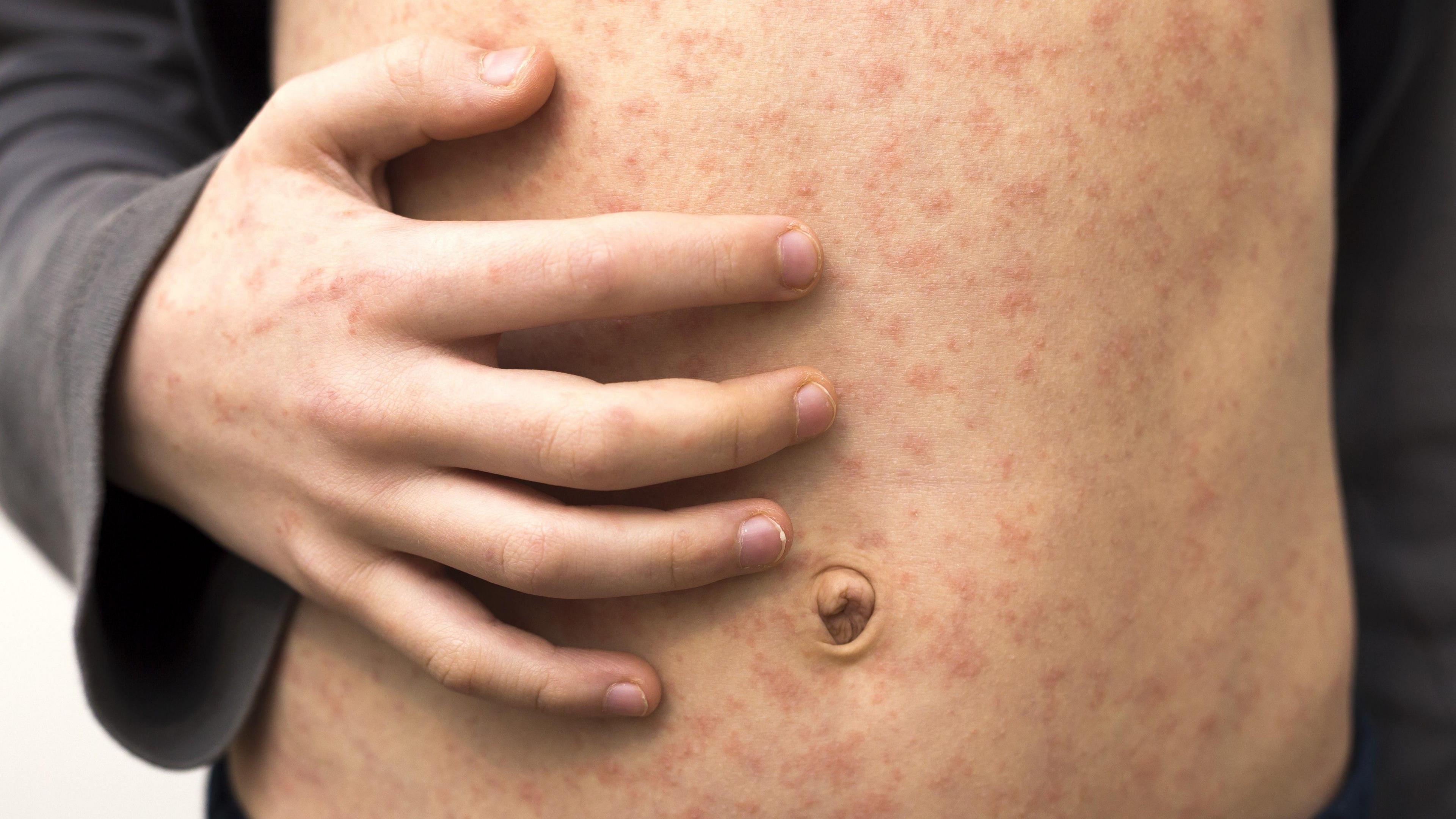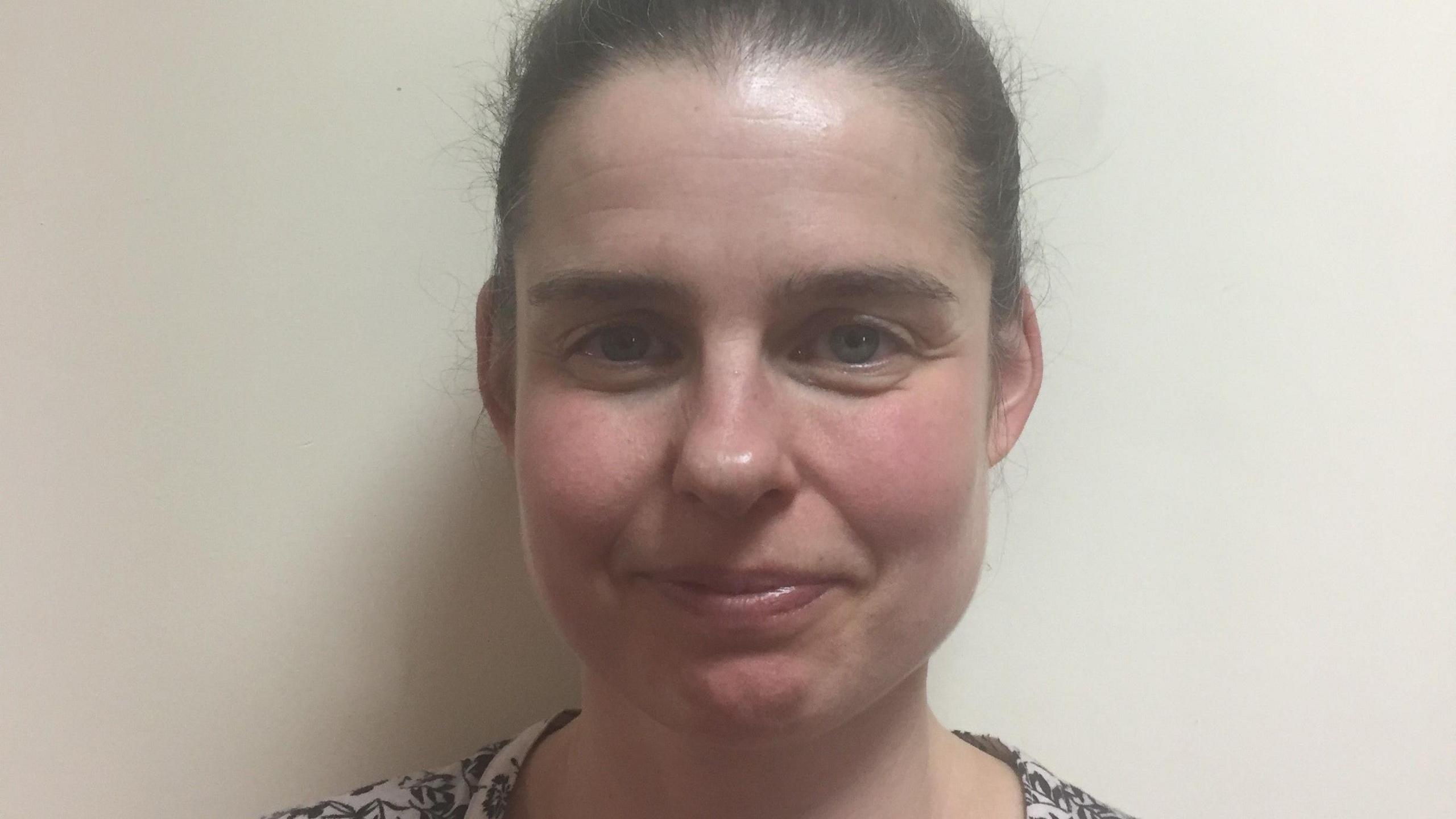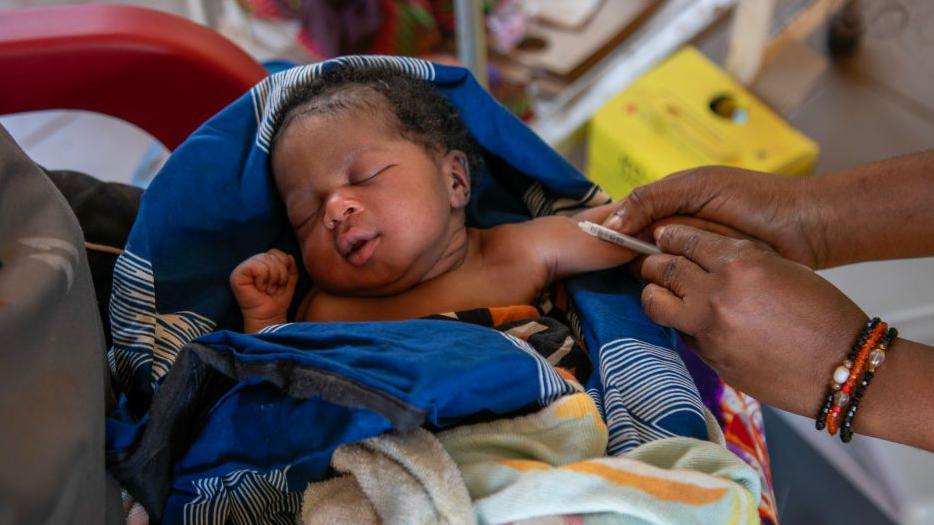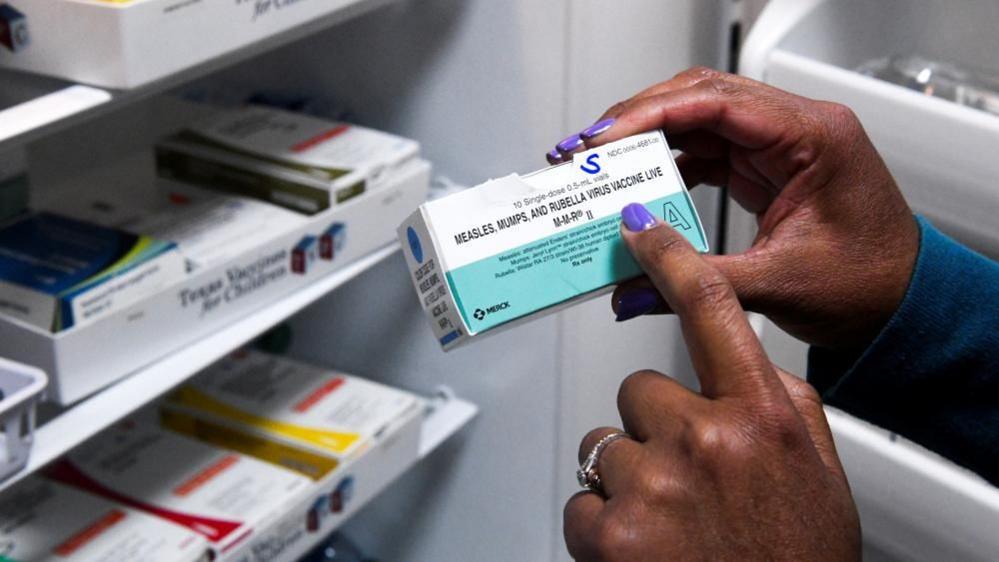Measles outbreak as vaccine rates drop

About a fifth of children in Knowsley have not had a vaccination to prevent measles
- Published
A borough on Merseyside is dealing with an outbreak of measles amid concerns over falling vaccination rates.
Knowsley has recorded 13 probable cases of the virus including 11 children, although that number is expected to rise as some are still awaiting test results.
Outbreaks of measles have become a concern across the country, a problem many believe is associated with falling uptake of the Measles, Mumps and Rubella (MMR) vaccine, usually administered in two doses.
Dr Sarah McNulty, director of public health at Knowsley Council, said about a third of people between the ages of two and 30 in the borough had not had either dose of the MMR jab.
She said about a fifth of children and young people in Knowsley, including 14% of two to five-years-olds, had not had a dose.
Dr McNulty told BBC Radio Merseyside: "Because we haven't seen measles for a while, I think people forget that measles can be a serious illness.
"It's not pleasant to have and it can have some quite severe complications, it can cause things like pneumonia
"People who get measles sometimes end up in hospital. It's not an illness that you would want to have if there is, as there is, a pretty good preventative intervention that you can take."

Dr Sarah McNulty, director of public health in Knowsley, says there is a "lot of evidence" that the MMR jab is safe
Measles infections usually start with cold-like symptoms such as a runny nose and coughing and sneezing, according to the NHS, external.
This is followed within days by a distinctive blotchy rash, which usually starts on the face and spreads to the rest of the body.
Dr McNulty said further outbreaks were likely across the country unless "we get really good population coverage of the MMR vaccine".
She said the reason for falling vaccination rates was a "mixed picture".
"I think some of it is that people tend to forget that it's a serious illness and so don't necessarily prioritize the vaccination for their children," she said.
Deliberate "anti-vaccination sentiment" was another reason, she said, adding: "I think that there is misinformation that people are maybe grabbing hold of and not, you know, using other sources of trusted information to try and debate that."
Dr McNulty said the MMR vaccine "has a lot of evidence around its safety" and urged anyone with concerns to speak to their GP or healthcare providers.
Children are usually given an initial dose of the MMR jab just before their first birthday, with the second administered after they turn three.
However, Dr McNulty said that was in the process of changing, and children born within the last year would be eligible to get a second dose at about 18 months old.
Anyone who has not already received the vaccine can also request it from their GP at any age.
Get in touch
Tell us which stories we should cover on Merseyside
Listen to the best of BBC Radio Merseyside on BBC Sounds and follow BBC Merseyside on Facebook, external, X, external, and Instagram, external, and watch BBC North West Tonight on BBC iPlayer.
- Published25 June

- Published6 June

- Published13 March
